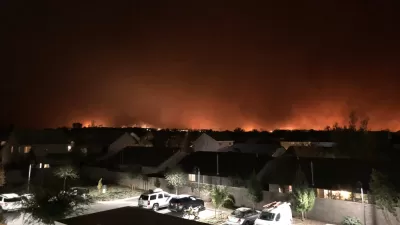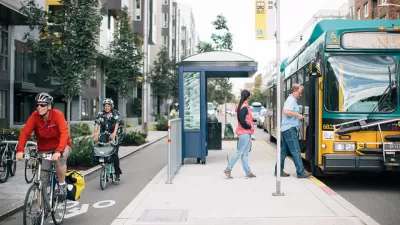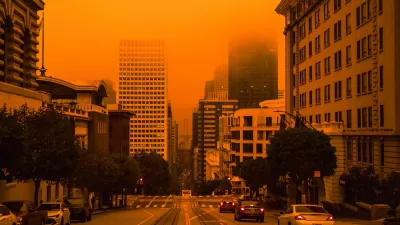As development pushes into more wildfire-prone areas and climate change makes extreme weather conditions more common, more Americans are experiencing the destructive impacts of climate disasters.

Last year, over 40 percent of Americans lived in counties struck by climate change-induced extreme weather events, while more than 80 percent experienced at least one day of extreme heat, according to research from The Washington Post, report Sarah Kaplan and Andrew Ba Tran.
Disasters affected regions across the country, with wildfires ravaging the West, heat waves killing hundreds in the Pacific Northwest, and hurricanes causing massive damage on the East Coast. "In the country that has generated more greenhouse gases than any other nation in history, global warming is expanding its reach and exacting an escalating toll."
In a steadily warming world, disasters can happen in places, at times and with intensities never seen before. They overwhelm infrastructure that wasn’t built to deal with them. They catch communities unprepared.
While some disasters—such as the deep freeze that paralyzed Texas infrastructure or the outbreak of tornadoes in Kentucky—can't be attributed to climate change, according to scientists, the record-breaking Pacific Northwest heat dome would not have been possible without it.
The authors note that climate change isn't the only way humans are contributing to more destructive disasters. Some factors, like development in high-risk areas, human-caused ignition sources, and exposed power lines can be mitigated with local land use regulations, public policy, and awareness campaigns. While fighting climate change takes a global effort, policymakers can also make impactful changes on a local scale by taking action to implement forward-looking policies and help residents build strong social support systems to help each other during a crisis.
FULL STORY: More than 40 percent of Americans live in counties hit by climate disasters in 2021

Alabama: Trump Terminates Settlements for Black Communities Harmed By Raw Sewage
Trump deemed the landmark civil rights agreement “illegal DEI and environmental justice policy.”

Study: Maui’s Plan to Convert Vacation Rentals to Long-Term Housing Could Cause Nearly $1 Billion Economic Loss
The plan would reduce visitor accommodation by 25% resulting in 1,900 jobs lost.

Planetizen Federal Action Tracker
A weekly monitor of how Trump’s orders and actions are impacting planners and planning in America.

Wind Energy on the Rise Despite Federal Policy Reversal
The Trump administration is revoking federal support for renewable energy, but demand for new projects continues unabated.

Passengers Flock to Caltrain After Electrification
The new electric trains are running faster and more reliably, leading to strong ridership growth on the Bay Area rail system.

Texas Churches Rally Behind ‘Yes in God’s Back Yard’ Legislation
Religious leaders want the state to reduce zoning regulations to streamline leasing church-owned land to housing developers.
Urban Design for Planners 1: Software Tools
This six-course series explores essential urban design concepts using open source software and equips planners with the tools they need to participate fully in the urban design process.
Planning for Universal Design
Learn the tools for implementing Universal Design in planning regulations.
Caltrans
Smith Gee Studio
Institute for Housing and Urban Development Studies (IHS)
City of Grandview
Harvard GSD Executive Education
Toledo-Lucas County Plan Commissions
Salt Lake City
NYU Wagner Graduate School of Public Service





























